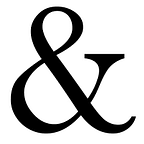Senegal’s Initial COVID Response Holds Lessons for the Biden Administration
The Context: The COVID-19 pandemic has truly been an awakening for many Americans and our faulty public health infrastructure, which was woefully unprepared for an epidemic of this scale. The question is, why? Prior to the pandemic, numerous health officials, Barrack Obama, and even Bill Gates were warning of a pandemic that the United States would not be prepared to handle. However, nothing was done. Many will blame (and rightfully so) President Trump for the slow response due to his dismissive rhetoric and literal disbanding of the pandemic response team just weeks before the first COVID case was reported in the Bay Area. However, I believe the lack of preparation goes beyond President Trump and will argue that his actions embodied many Americans’ shared arrogance. This arrogance led to unwavering trust in exiting institutions regardless of evident flaws in the systems. This arrogance is one of the significant reasons America is a world leader in yet another category; COVID deaths. On the other hand, Senegal, with a GDP of 24.13 billion, 0.117% of America’s, has dealt with the pandemic incredibly well. This is due to their willingness to listen to health experts and previous encounters with infectious diseases. While in America, we see large populations claiming the virus to be a hoax, and people in power politicizing necessary health measures such as mask-wearing. Hopefully, the pandemic quells some of the arrogance plaguing this country, and we can learn from it just as Senegal has learned from its past pandemics.
What Senegal Did Differently: Senegal’s response has been so credible that Foreign Policy has ranked it #2 after New Zealand in dealing with COVID. A couple of aspects immediately become clear about how Senegal handled things differently, none of which require dramatic uses of resources or a significant policy change. Firstly, they were flat out better prepared; while years of outsourcing has left the United States utterly dependent on Chinese manufactured medical supplies, Senegal has adequate storage of all stores in case of an emergency. When the pandemic first hit the U.S., there was a massive mask and ventilation shortage. Hospitals were overcrowded, and there were not enough beds for numerous infections. On the other hand, Senegal never experienced any lack of medical supplies or hospital rooms as they ensure a bed for everyone infected; again, this all comes back to general preparedness, which is inexpensive and incredibly effective. Senegal had become better prepared after its brush with the Ebola virus in 2014. Secondly, the communication from both government messaging and pop culture icons offered stability and truth to the pandemic resulting in citizens adhering to COVID Safety precautions. The government provided a daily reading of new cases and deaths, mentioning areas to avoid; this complete transparency created trust within the citizens and is quite easy to implement. Finally, there was communication between public health officials and local community groups, most notably mosques, who gave daily COVID reminders and followed all mandatory precautions. These shifts are all easily implementable and don’t require a shift in policy or ethos, and hopefully they serve as pillars to which the Biden Admin can build upon.
